Editors: Dr. Asa Hilliard, Larry Williams, Nia Damali, and Victor Trammell
Photo credits: Martino Publishing
{I will use the words Afrikan and Black interchangeably for people of African descent)
The late Dr. John Henrik Clarke, the legendary Africana Studies Professor, and respected Pan Africanist, once said, “Afrikan history is the missing pages of world history.”
With the live-streamed broadcast of the murder of George Floyd, an unarmed Black man from Minneapolis, Minnesota, by a racist white police officer, masses of Afrikan people, and many people in humanity, became outraged over his killing. Floyd’s death became the continued impetus for a millennial “woke” (Black consciousness) and social justice movement in the Afrikan American community since the murder of another unarmed Afrikan American named Trayvon Martin. Martin was killed by a racist white Hispanic named George Zimmerman on February 26, 2012.
Many Afrikan people are now discovering “new” facts in Afrikan history and culture. Afrika is the birthplace of civilization. The early presence of Afrikan people before Christopher Columbus is also historically documented. A day in 1619 was the start date of the enslavement of Afrikan people in America. The United States Democracy was made a reality for all people through Black freedom struggles–such as the massacre of a thriving Afrikan American community in Tulsa, Oklahoma called Black Wall Street by white racists on June 1, 1921. Another was the building of the White House by enslaved Black Labor in America. The word “Hotep” is the oldest ancient Afrkan Kemetic (Egyptian) word for peace.
The assassination of Black Panther Party leader Fred Hampton by the FBI is another example of the Black freedom struggle, as well as an old Afrikan American holiday called Juneteenth. One of the things we must also “discover” on our path of being “woke” is an Afrikan sage named Ptahhotep. His text reflects the original knowledge of Afrikan spirituality and philosophy before the rise of white supremacy’s vicious and fictitious justification of Black people being labeled uncivilized and subhuman. The Teachings of Ptahhotep is a powerful book filled with wisdom and the analysis of the spiritualism and philosophy of the Medu Neter language and the 42 Laws of Ma’at.
Medu Neter is the original Afrikan language of Kemet. When Europeans (then later the Arab invaders of Afrika) conquered Kemet, they changed the Afrikan name of the Kemet nation to a foreign name called Egypt. In fact, Afrika’s conquerors also changed the names of Kemet’s cities, holy sites, architectural structures, leaders, scientists, and philosophers. Kemet means “the land of the Blacks.” The non-black foreign conquerors renamed Kemet’s language of Medu Neter to “the hieroglyphics.” Afrika’s invaders made Kemet’s spirituality illegal. They closed all the faith temples of Kemet for hundred years.
Kemetic spirituality (and its 42 laws of Ma’at) existed thousands of years before Judaism, Christianity, and Al-Islam came into existence. In fact, many respected theologians, Egyptologists, and history scholars have written books presenting to humanity that the world’s western religions plagiarized Kemetic spiritual cosmogony. They stole from Ma’at to develop their own versions of Jewish, Christian, and Islamic cosmogony. Western religions also stole Ma’at’s ethics and moral codes. Many non-black murderous thieves have exploited Afrika of its people, land, treasures, and resources–so too were her religious traditions plundered.
Unfortunately, the world’s major religions did not give credit back to Afrika for helping them find their pathway to faith and a code of ethics and morality. As state before, during the slave trades of the European and Arab worlds, non-black slave drivers had to justify the maltreatment of Black people in Afrika by fabricating a myth that Afrikan culture and spirituality were subhuman, savage, uncivilized, satanic, and polytheistic. Although Kemet was taken over by colonizers, the Medu Neter language still exists. It documents the recorded history of Kemet, its culture, its spirituality, its sciences, its theology, and its philosophical traditions. Ma’at comes from ancient Kemetic spirituality. Translator Battiscombe George Gunn’s book titled The Teachings of Ptahhotep points to the spirituality of Medu Neter and Ma’at.
It is irrefutably considered by Egyptologists and historians as the oldest written text in the world.
Bashir Muhammad Akinyele is a History and Afrikana Studies teacher at Weequahic High School in Newark, NJ. He is also the co-coordinator for ASCAC’s (the Association for Study of Classical African Civilizations) Study Group Chapter in Newark, NJ. (https://ascac.org/)

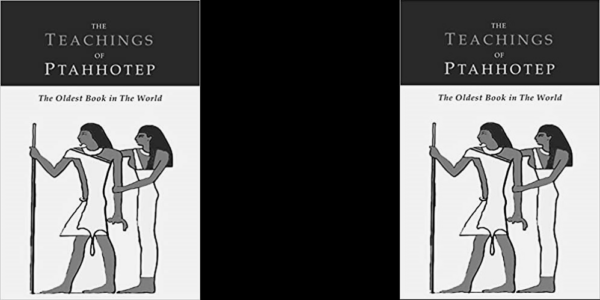





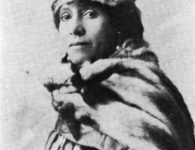

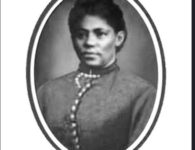



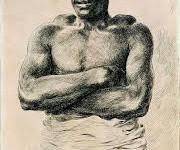


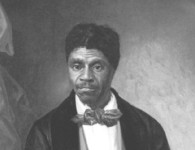




No comments